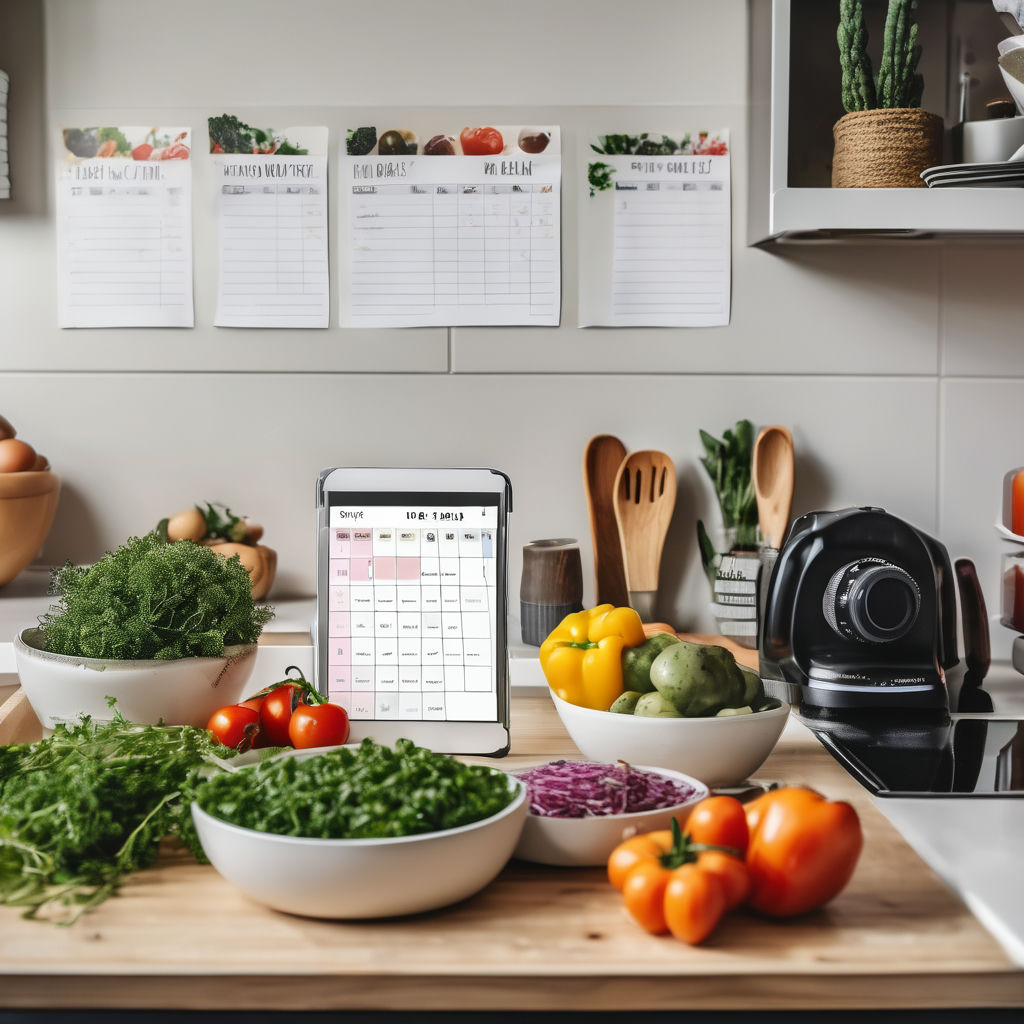
Let AI Handle Your Meal Planning: How Personalized Meal Plans Save Time and Stress
The Weekly Cooking Dilemma
Monday evening arrives, and you face the same question millions of home cooks ask: "What's for dinner?" This simple question often spirals into a frustrating cycle—scrolling through recipes, checking your pantry, cross-referencing grocery prices, and negotiating preferences with family members. By Wednesday, decision fatigue has set in, and you're ordering takeout just to avoid the mental burden of figuring out what to cook.
This isn't laziness. It's cognitive overload. Meal planning requires dozens of micro-decisions: nutritional balance, ingredient preferences, dietary restrictions, cooking time, skill level, and grocery budget. When you're juggling work, family, and other responsibilities, these choices become surprisingly exhausting.
Why Traditional Meal Planning Falls Short
Conventional meal planning requires you to be the expert. You're expected to know which ingredients pair well, how to balance macronutrients, what recipes suit your skill level, and whether you already have items in your kitchen. Even meal planning apps often dump generic suggestions without considering your unique situation—your actual pantry contents, your family's taste preferences, or your available cooking time on a hectic Tuesday.
The result? Plans you abandon, recipes you never cook, and groceries that spoil in your fridge.
How AI-Powered Personalization Changes the Game
AI-powered meal planning takes the guesswork out of the equation by learning about you. Instead of offering random recipes, intelligent systems analyze your preferences, dietary needs, cooking skill level, and available ingredients to create truly personalized suggestions.
When you generate an AI generated meal plan tailored to your needs, the system considers factors humans often overlook:
Your Actual Pantry: Instead of suggesting recipes that require ingredients you don't have, AI meal planners can review your pantry inventory and build meals from what you've already got. This eliminates food waste and reduces your grocery shopping burden.
Time Constraints: Whether you have 15 minutes or an hour to cook, personalized plans can prioritize quick meals on busy nights and save more involved recipes for weekends when you have breathing room.
Nutritional Goals: The system can balance macronutrients across your week, ensuring you're hitting protein targets, managing carbs, or following specific dietary approaches without requiring you to calculate everything manually.
Taste Preferences: Rather than ignoring your preferences, AI learns which cuisines, ingredients, and cooking styles you actually enjoy. Your meal plan reflects your tastes, not generic suggestions.
Reducing Decision Fatigue in Practice
When you delegate meal decisions to an intelligent system, something remarkable happens: your mental energy returns. You're no longer making dozens of food-related decisions daily. Instead, you review one curated plan, approve it, and move forward.
This matters more than it sounds. Decision fatigue affects your willpower, focus, and stress levels throughout the day. By eliminating meal-related choices from your mental workload, you free up cognitive resources for things that matter more.
The shopping list automatically aligns with your meal plan, so you're not standing in the grocery store wondering if you're forgetting anything. Portions are calculated based on your household size. Prep steps are logically organized. You follow the plan with confidence rather than second-guessing every choice.
Beyond Planning: A Complete Cooking Experience
The most effective AI meal planning systems extend beyond just suggesting recipes. They integrate with your pantry management, track nutritional information, and help you adapt recipes based on what you actually have available.
When you find a recipe you love—whether it's from a food blog, social media, or a cooking video—you should be able to save it and incorporate it into your planning system. This creates a personalized recipe collection that grows richer over time, reflecting your evolving tastes and discoveries.
Smart systems also help you batch cook efficiently, suggesting recipes that share ingredients or cooking methods so you can prepare multiple meals in one cooking session. This compounds your time savings throughout the week.
Making It Sustainable
The beauty of AI-assisted meal planning is sustainability. You're not forcing yourself into a rigid diet or cooking style that doesn't match reality. Instead, the system adapts to your life—your schedule, budget, preferences, and available time.
After weeks of using a personalized meal planner, you'll notice patterns: which meals your family actually enjoys, what cooking methods fit your schedule, and how much grocery budget you truly need. The system learns alongside you, making progressively better suggestions.
Taking the First Step
If meal planning currently feels like a burden rather than a helpful tool, it's time to try a different approach. Look for systems that genuinely understand your kitchen situation—your pantry, preferences, and constraints—rather than offering generic recipes to everyone.
The goal isn't perfection. It's sustainability. When meal planning stops being stressful and starts being helpful, you're more likely to stick with it, waste less food, and actually enjoy the meals you've planned. That's when cooking becomes something you look forward to rather than something you're trying to escape.